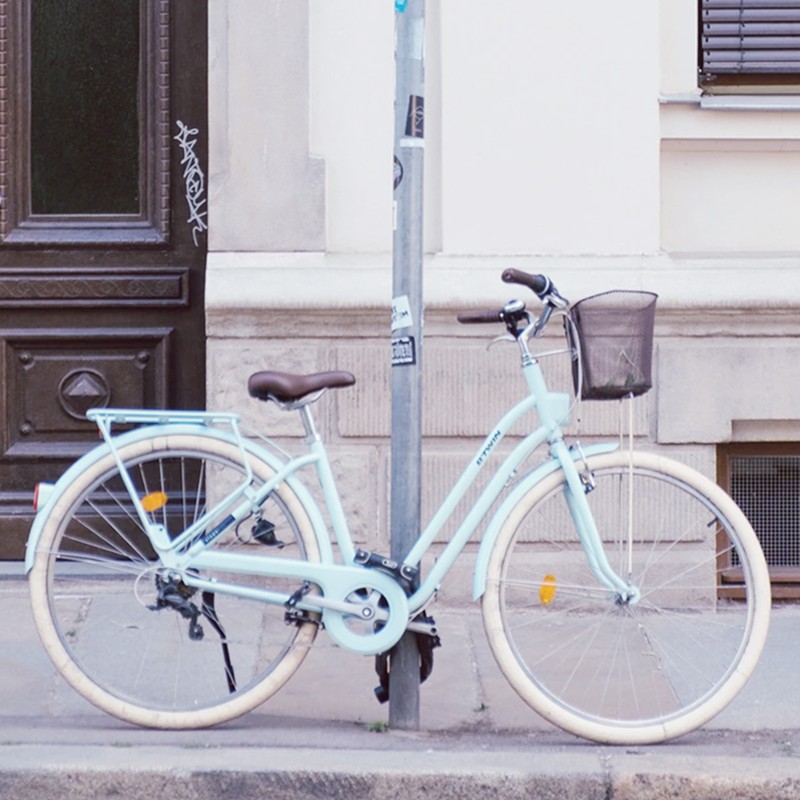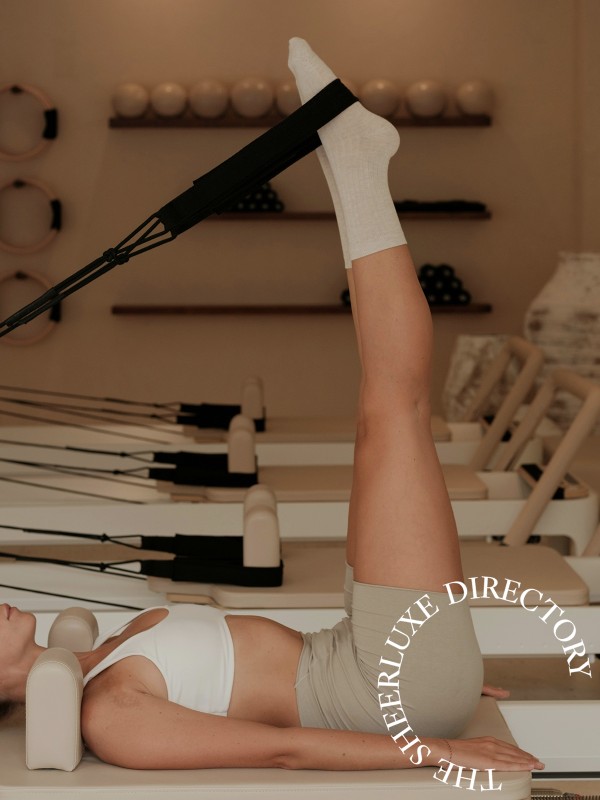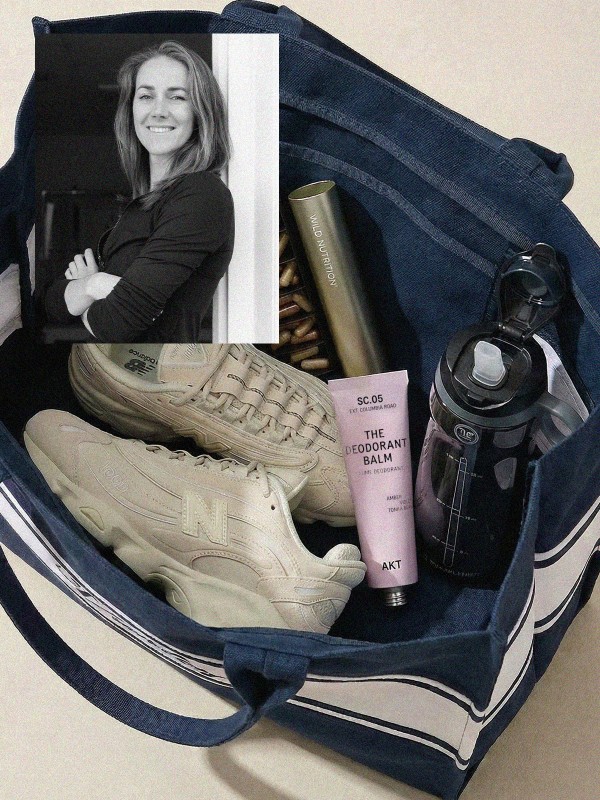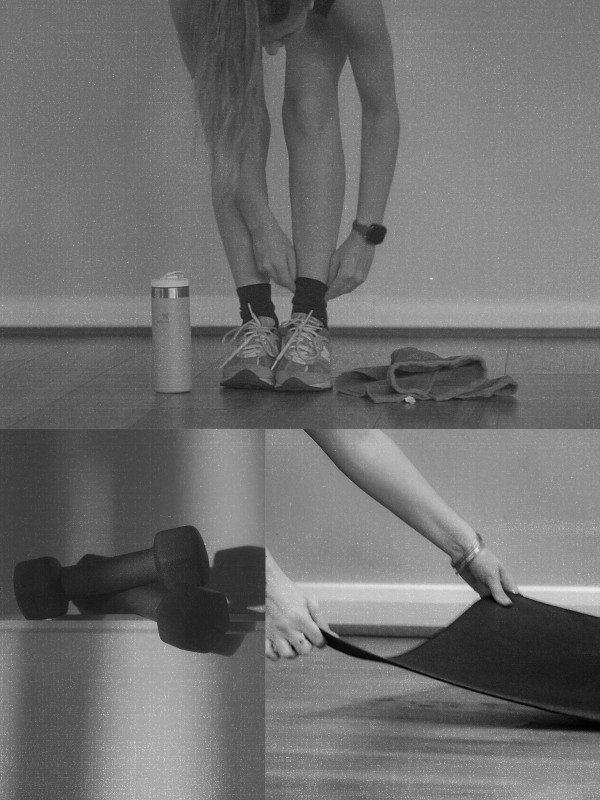11 Ways To Be A Savvier Cyclist
INVEST IN THE ESSENTIALS
“Good lights and a decent waterproof are cycling essentials. Bike light brands with a good reputation are Lezyne, Knog and the Specialized Stix – they’re all easy to put on and take off, so you can pop them in your pocket when you’re not using them, and they won’t get damaged if there’s a downpour. A good rucksack that’s water resistant is also helpful, and ideally, make it one you can throw in the washing machine. Also, ensure you lock your bike with a metal D lock, not a wire or chain, which can be easily cut. You can always buy a D lock and leave it at work on the bike racks to save you carrying it around.”
ALWAYS WEAR A HELMET
“Helmets are not compulsory by law in the UK, but The British Medical Association does advocate the compulsory use of helmets. Working in a hospital, I’ve seen too many people with serious trauma injuries that could have been avoided by wearing a helmet. Remember you can control your bike as best as you can, but you can never control a driver. For example, recently, there have been reports of ‘punishment braking’, whereby the driver feels they get ‘stuck’ behind a cyclist, so they overtake the cyclist and brake quickly as soon as they get in front of them. This can cause the cyclist to go straight into the back of the car. Wearing a helmet is essential."
SIGN UP TO A COURSE
“Some local councils run cycling proficiency courses, often at a minimum cost to the participant. Bikeability is the main provider of these courses, and they offer sessions for adults and children. Skills you might learn include road positioning when cycling, how to signal, how to ride in a group, and being safe on your bike. Courses like these are a great way to build confidence.”
THINK ABOUT MAINTENANCE
“You should be doing a maintenance check weekly if you’re riding your bike every day. British Cycling has a great video you may find useful. Try to service your bike once a year at your local bike shop, but maintain it yourself in-between. A general service for an entry-level road bike or hybrid bike will cost you around £50. Basic maintenance is easy to learn yourself – there are some good videos on YouTube from Global Cycling Network (GCN). Other more complicated jobs can be done at your local bike shop – these may include gear indexing (stopping your gears from clicking), or ‘truing’ your wheels (i.e. realigning them), as these will require a little more equipment. It’s also important to clean your bike regularly so the metal parts don’t wear out too quickly from grit and dirt from the roads – just like you would clean your car. All of these things keep you safe when you ride, so it’s a good idea to keep them in check.”
BE AWARE OF HAZARDS
“When you cycle you have to anticipate that everyone in a vehicle around you will make a ‘stupid’ move. I know that sounds basic, but take yourself back to your hazard perception test when you were driving. For example, pedestrians that could walk off the kerb and into the road, cars that could indicate at the last moment, changes in the road structure or speed limit, merges in lanes, and unclear road markings are all things that we should be looking out for as we ride along. Always use your common sense, just like you would if you were driving.”
STEER CLEAR OF THE KERB
“You should never ride in the gutter, i.e. right by the pavement – in an ideal world, you shouldn’t be riding within 50cm of the kerb, instead aiming to cycle around one metre away from the kerb. This is called the secondary position. As you’re about to take a junction or get into the right lane for a roundabout, for example, you should move further out into the primary position, into the middle of the lane as you signal. This shows people around you that you need space, and it brings you as ‘the cyclist’ as a vehicle into the forefront of others’ minds so they know you are about to make a manoeuvre. You’ll also need to figure out if the lane you’re cycling in is a shared space between cyclists and pedestrians – if it’s shared, then by all means use it, but otherwise you should be on the road.”
KNOW THE RULES OF THE ROAD
“Remember as a cyclist you are still driving a vehicle. You need to keep yourself and other road users safe. Never run a red light – you’ll be eligible for a £50 on the spot fine. It’s also fine to overtake other cyclists. Just remember to signal and check around you, making sure nothing is coming first.”
REMEMBER TO SIGNAL
“One of the biggest mistakes I see beginner cyclists making on the roads is not signalling before taking a turn. If you’re dealing with a junction somewhere as busy as London, be assertive and clear to other road users. Signal early and don’t make last minute decisions. I used to cycle from Birmingham to Wolverhampton for work, on some very busy, main roads. As long as you signal and think about the perception of other road users you should be fine.”
BE SAVVY WITH YOUR PHONE
“If you’re unsure of your cycling route and want to use Google Maps while cycling, try not to use your headphones as this will take away your ability to hear what’s going on around you. Instead, try popping your phone on a device holder, which you can attach to the stem of your handlebars – Quadlock is a good brand. Other apps that are great and cycling specific are Komoot and Strava. You can also get GPS devices such as a Garmin or Wahoo, which have preloaded maps.”
KNOW HOW TO DEAL WITH LORRIES
“Never cycle up the inside of a lorry. I tend to sit directly behind a lorry as another ‘vehicle’ and be clear to any cars behind you that this is where you intend to stay until you need to turn off. If you feel pressurised by other drivers behind you, pull over in a safe spot and let them pass.”
CONSIDER A DASH-CAM
“If you are using your bike for a London-based commute, it could be worth considering a dash-cam. If you do happen to be hit, they can be hugely helpful when it comes to insurance claims.”
To book an online physio appointment with Becky or to join her women-only monthly bike rides in the Cambridge area, visit her Facebook page. Follow her on Instagram @tri_raving. For more information on cycling safely in London, visit TFL.gov.uk.
*Features published by SheerLuxe are not intended to treat, diagnose, cure or prevent any disease. Always seek the advice of your GP or another qualified healthcare provider for any questions you have regarding a medical condition, and before undertaking any diet, exercise or other health-related programmes.
DISCLAIMER: We endeavour to always credit the correct original source of every image we use. If you think a credit may be incorrect, please contact us at info@sheerluxe.com.






